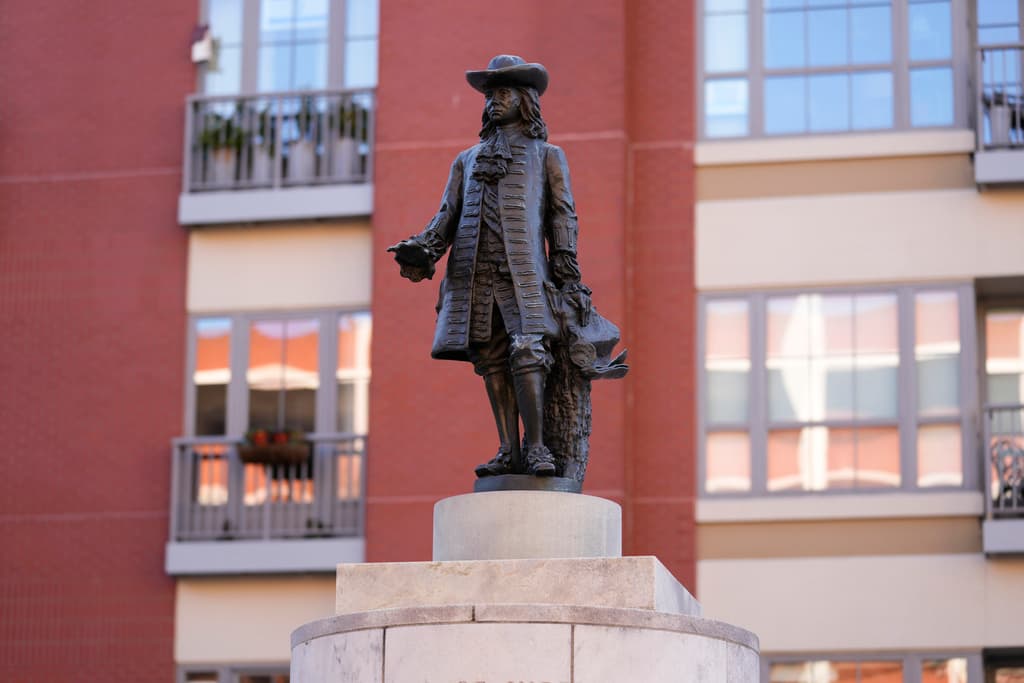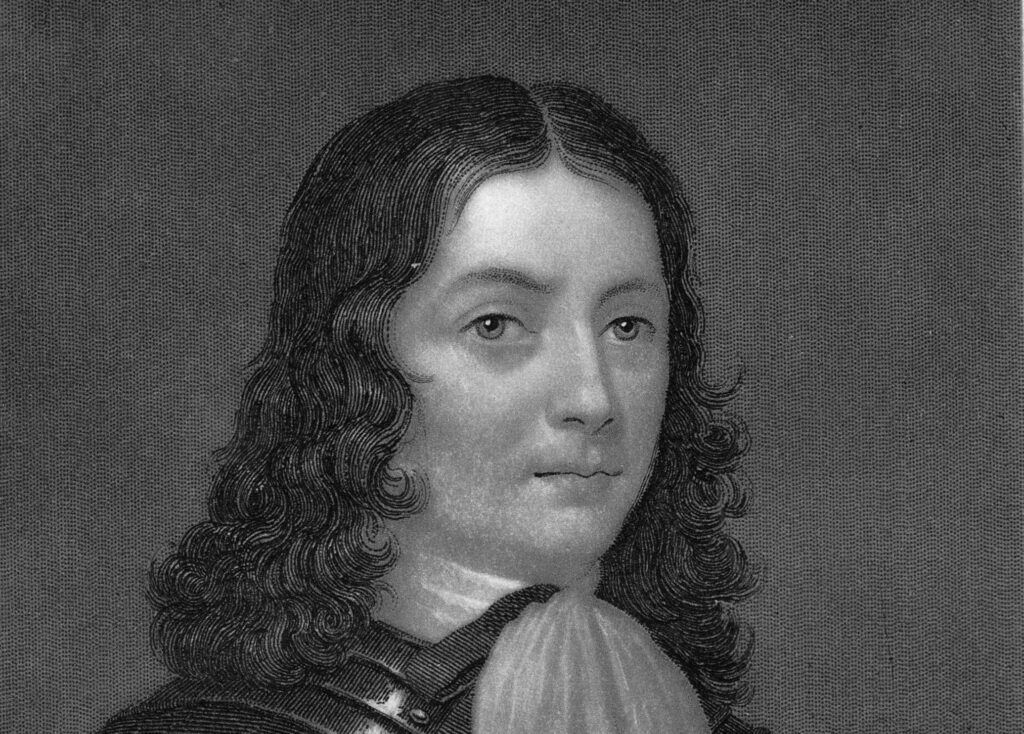Biden Administration Withdraws Proposal To Remove William Penn Statue, After National Backlash
Three days after the announcement of a proposal to remove the Philadelphia statue, the National Park Service says it was ‘released prematurely.’

After national backlash against a proposal by the Biden administration’s National Park Service to remove a William Penn statue at Philadelphia, the park service is retracting the plan.
The proposal had called for removal of the statue from the city’s Welcome Park — located on the site of Penn’s home and named after the ship that brought him to America — in an effort to make the park a more “welcoming, accurate, and inclusive experience.” The park service began accepting public comment on the proposal on Monday, and within hours, announced the cancellation of the plan.
“Independence National Historical Park has withdrawn the review of a draft proposal to rehabilitate Welcome Park and closed the public comment period,” the park service said in a statement. “The preliminary draft proposal, which was released prematurely and had not been subject to a complete internal agency review, is being retracted.”
The park service is no longer planning any changes to the Penn statue, it said.

The park service’s change of plans was praised by Pennsylvania’s governor, Josh Shapiro, as well as Elon Musk.
“My team has been in contact with the Biden Administration throughout the day to correct this decision,” Mr. Shapiro wrote on X. “I’m pleased Welcome Park will remain the rightful home of this William Penn statue — right here in the Commonwealth of Pennsylvania Penn founded.”
The original removal proposal received fierce backlash from the media and some lawmakers.
One Republican state representative, Bryan Cutler, wrote in a memo on Monday that he planned to introduce a resolution “honoring the life and accomplishments of William Penn and encouraging the Biden administration and National Park Service to immediately halt their announced plans to permanently remove Penn’s statue from Welcome Park in Philadelphia as part of an effort to make the park more inclusive.”
Noting that Penn was “radically inclusive” for his time, Mr. Cutler lauded Penn for his “historic” treaty that fostered respect between Penn and Native tribes.
Mr. Cutler called on his fellow representatives, “as the caretakers of Penn’s legacy” to unify in opposing the removal and “set the record straight on the legacy of William Penn.”
In a separate statement, Mr. Cutler said the decision to try to “cancel William Penn out of whole cloth” is another example of “the left in this country scraping the bottom of the barrel of wokeism to advance an extreme ideology and a nonsensical view of history.”
The issue is “deeply personal,” he said, as his family first came to Pennsylvania in 1685, just three years after Penn’s arrival. “They came to Pennsylvania because they were Quakers who shared Penn’s view of religious tolerance and peace,” Mr. Cutler said of his ancestors.
The proposal also sparked concerns from state senator Doug Mastriano. “NPS is removing William Penn from the small park where his house stood in the name of inclusion,” he wrote on X. “Our founder is canceled and history rewritten.”
Philadelphia Council member Mark Squilla, whose district is home to Welcome Park, had planned to work with Old City District’s registered community organization “to determine their opinions,” his chief of staff, Anne Kelly King, told the Sun prior to the withdrawal of the proposal.
The office of one Democratic member of the Philadelphia City Council contacted by the Sun refused to be quoted on the record about the statue, insisting that it was a National Park Service issue.
Born at London in 1644, Penn was an influential Quaker theologian, as the Sun has reported. He emigrated to Britain’s American colonies after years of religious persecution. In 1681, he founded the colony of Pennsylvania after he received a grant of some 45,000 square miles of land north of the province of Maryland and west of New Jersey.
Penn, as the proprietor of the colony, drafted a Charter of Privileges that provided religious liberties and civil rights. The document would go on to serve as an influence on the Continental Congress that, at Philadelphia in 1787, drafted the American Constitution.

